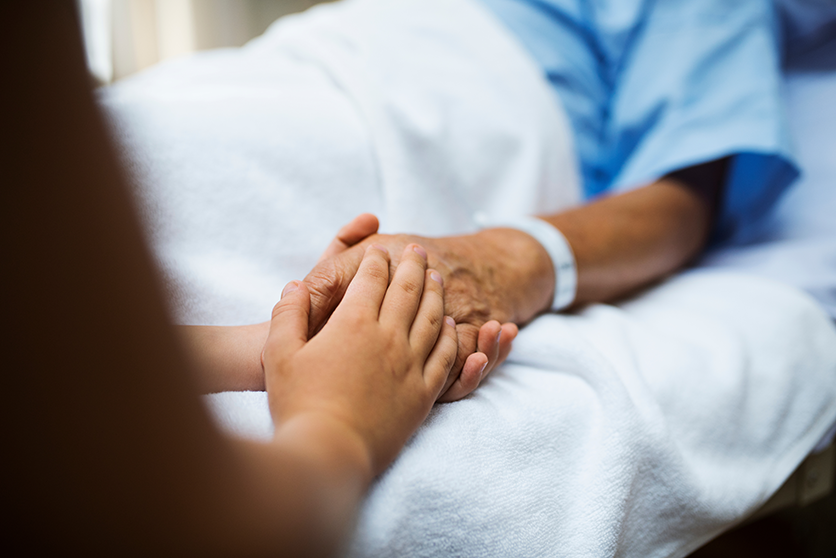
“It’s cancer.”
This two-word sentence strikes fear into anyone who is on the receiving end of a healthcare provider’s pronouncement. In fact, in 2023, nearly two million new cases of cancer are expected to be diagnosed, and more than 600,000 lives will succumb to cancer, according to the American Cancer Society. A cancer diagnosis is the last thing any patient wants to hear after extensive testing and likely weeks of waiting.
Fear. Questions. Dread. Anxiety. Relief. Disappointment. Panic. These are only a few expected emotional responses to those life-changing two words. “It’s cancer.” Two words turn a person’s (and their entire family’s) life upside down.
And yet, it could be wrong. Instead of a cancer diagnosis, you may be a patient with a cancer misdiagnosis. The idea that the healthcare provider who just delivered that fateful message could be wrong is not an everyday thought or reaction. A misdiagnosis of cancer doesn’t happen. Does it?
How Does Cancer Misdiagnosis Happen?
Discovering that one has cancer is an undesirable situation for anybody, but an incorrect cancer diagnosis or delayed cancer diagnosis can compound the seriousness of the problem. Simply put, a cancer misdiagnosis can happen. A misdiagnosis of cancer happens to nearly 12 million people a year, according to a 2020 Healthline article. How do medical professionals provide an incorrect cancer diagnosis? Several factors could play a part in the misdiagnosis, including:
- The type of cancer identified initially is incorrect;
- The provider misidentified the severity of the disease;
- The original prognosis misdiagnosed cancer symptoms;
- An error occurred during the collection of the tissue sample, at the lab, or cancer screening mistakes with the results; or
- The original prescribed course of treatment was ineffective due to the misdiagnosis.
What Happens After the Diagnosis?
Cancer cases are remarkably high, affecting approximately one in every two men and one in every three women. It should come as no surprise that cancer ranks among the most frequently misdiagnosed medical conditions. Research conducted by the American Cancer Society reveals that specific types of cancer can be misdiagnosed at alarming rates, reaching as high as 61 percent.
As with any diagnosis, time is of the essence when bad news is delivered. The chances of survival are generally higher when the medical provider identifies and treats the illness early. That is why when a doctor provides an inaccurate cancer diagnosis, the patient may lose valuable time or an opportunity for potentially life-saving treatment. On the other hand, patients may undergo cancer treatment, leading to side effects, only to find out they never had cancer to begin with. While relief may come in knowing you do not have a cancer diagnosis, the mental and emotional anguish and trauma experienced cannot be overlooked. Finally, a patient may experience a significant financial loss in paying for treatment or time away from work to deal with their “illness.”
How Common is a Cancer Misdiagnosis?
In 2020, the most common cancers for men and women were lung and colorectal. Prostate (men) and breast (women) cancers were also some of the most commonly diagnosed. Inclusive of all kinds, these cancers accounted for about 46% of all cancer diagnoses in 2020. Melanoma, bladder, kidney, and lymphoma were also common diagnoses.
The National Library of Medicine reports nearly 28 percent of patients deal with some form of cancer misdiagnosis.
- 76% involved errors in clinical judgment;
- 51% involved a failure or delay in ordering a diagnostic test; or
- 37% involved a failure or delay in obtaining a consult or referral
What To Do If You Receive a Cancer Misdiagnosis
Before ever reaching the point of knowing you’ve received a misdiagnosed cancer case, you should immediately consult another physician for a second opinion or ask for another round of testing from your current provider to be thorough. Rerun the tests or screenings, and equip the physician with as much information as possible about your medical history and your family’s.
Creating a daily log of your appointments, information, and feelings is also a good idea. Documenting what you are going through can help you build a case should you need to consult a medical malpractice attorney. Keep records of all bills, invoices, insurance payments, daily living expenses, travel expenses, daycare, food and lodging, and other money spent seeking clarification or revisions of treatment. Records are vital because they provide detailed accounts for any damages you may deserve.
How We Can Help
Healthcare providers are subject to human error just like the rest of us, but that doesn’t absolve them of any responsibility or malpractice. A cancer misdiagnosis can cause significant financial and emotional burdens to you and your family.
If you have suffered from a cancer misdiagnosis, it’s essential to seek legal representation from a medical malpractice firm. An experienced attorney can help you understand your legal options and hold the responsible parties accountable for their actions. In addition to seeking legal recourse, working with healthcare providers is important to ensure you receive the appropriate medical care and support.
To schedule a free consultation, call us at 317-566-9600 (Indianapolis), 765-865-9300 (Kokomo), or 812-566-2600 (Bloomington), or complete our online inquiry form to schedule an appointment* with one of our health professional attorneys to review your case. We hope to hear from you if you were harmed through medical treatments or neglect. We have offices in Indianapolis, Kokomo, and Bloomington to serve you.
*Free consultation; no retainer fee. You don’t pay a fee until we obtain a settlement for you. All attorney fees are based on the amount of your recovery.
*The amount of medical malpractice attorney fees is set by Indiana Law.
